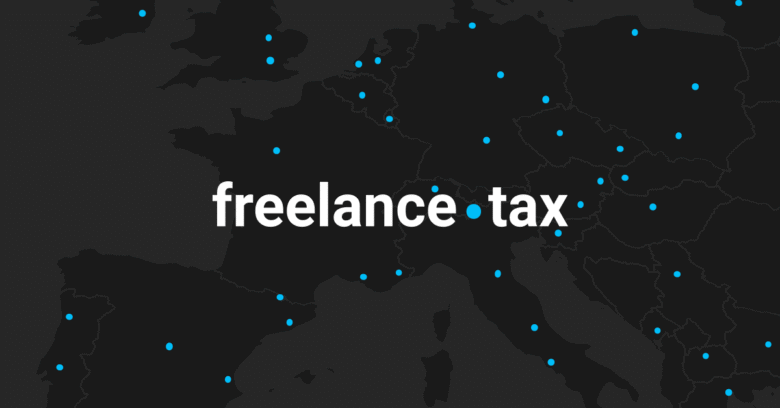Being a freelancer, juggling taxes can seem overwhelming. In contrast to traditional employees, freelancers don’t get taxes deducted automatically from their pay checks. They are, therefore, fully accountable for keeping track of their earnings as well as estimating taxes due and making sure the information they report is accurate. If they don’t have a plan it’s easy to commit costly errors or miss chances to cut costs. Understanding your tax responsibilities and following a sound strategy is crucial. Becoming proactive with taxes will help you avoid stress at the last minute as well as avoid penalties and ultimately allow you to keep the money you’ve worked hard to earn.
Keeping Accurate and Organized Records All Year Long
The most important methods to handle freelance tax efficiently is to keep precise and well-organized documents. This includes storing invoices, receipts and payment confirmations, as well as any other documentation that pertains to expenses and income. Making sure everything is recorded in real-time rather than rushing through tax time, guarantees that everything is accurate and make the entire process more simple. Utilizing accounting software or simple spreadsheets can assist in keeping the track of everything. Records that are clear also serve as evidence in the event of audits and help you determine the expenses that are tax-deductible which directly impacts the amount of tax you’ll have to pay.
Understanding What Counts as Taxable Income
Freelancers usually work with multiple clients. Their income may be received in a variety of types, such as direct deposits, checks, or even online payments like PayPal and Stripe. It is essential to report every income earned regardless of whether a client doesn’t provide an official tax form. For instance within the U.S., if a client is paying you more than an amount of money and they provide you with a 1099 form If they don’t then it’s your responsibility to file the income. Inadvertently not reporting every income source can result in tax audits and penalties. Knowing what constitutes income is essential to remain on track and avoid surprise tax time.
Identifying and Claiming All Eligible Deductions
Many freelancers do not take advantage of deductions that could drastically reduce their tax-deductible income. Deductible expenses are legal business expenses that you must pay when earning your earnings. This could include things such as home office costs including Internet bills, software for business as well as phone expenses marketing, travel expenses for meetings with clients and other equipment like cameras or laptops. Even the smallest of items such as printing ink for printers, subscriptions or coffee at a client meeting could be deducted. Rectifying receipts and categorizing your expenses frequently will ensure you are able to claim all the deductions you’re entitled to. As many deductions as you can claim legally and the lower tax you’ll be paying.
Setting Aside Money for Taxes Throughout the Year
One of the most frequent mistakes freelancers make is not to save enough funds to pay taxes. Since taxes aren’t automatically withheld from your paycheck, it’s possible to use the money you earn and fall short when it comes time to pay. It’s a good idea to put aside a portion of each installment, usually between 20-30%–into an account that is specifically devoted to tax payments. This way, you don’t get surprised when tax time comes around. Making quarterly estimated tax payments that are mandatory in a lot of countries, can help you avoid interest and penalties for late payment. Saving consistently and planning ahead can ease the anxiety during tax season.
Avoiding Common Tax Filing Mistakes
There are a variety of common mistakes freelancers make when they file taxes. This includes not reporting every income earned, failing to report on deductions, filing too late or failing to pay tax estimates. Small errors can lead to penalties as well as delays in the processing of refunds. Be sure to carefully review your tax return by double-checking the numbers and making sure that all the required documents are filed can prevent these issues. If you’re not sure of something, then it’s best to consult a professional or look up the tax authorities’ resources instead of making a making a guess. By filing correctly from the beginning can help you avoid a lot of headache later.
Planning Ahead for Future Tax Seasons
If you’ve been through an entire tax year as freelancer, it’s simpler to prepare for the next. Learn from the experience what went well as well as what made it difficult and what can be improved. Perhaps you require better record-keeping and more consistent savings or a better system to track invoices. Implementing processes early in the year can help make tax preparation easier later on. It’s also important to be aware of any tax law changes that impact freelancers. Tax planning shouldn’t be something you consider only in April or March. It’s an all-year-round obligation that rewards those who are well-prepared.
Conclusion
The tax burden of freelance work can be daunting initially however, with the right preparation and organization that they shouldn’t become an issue. From calculating your earnings to filing deductions and making sure you pay taxes in time, every stage is a key factor in how successful you are financially. If you take the time to know your tax responsibilities and utilizing the appropriate tools or assistance from a professional you will make sure you don’t make costly mistakes and save cash. Being a freelancer provides freedom and flexibility, however it also carries being accountable for your money. Staying on top of your game and knowledgeable about taxes can help you save more of your earnings and operate your business with confidence.
FAQs
1. Do home office costs tax-deductible by freelancers?
If you own an area that is exclusively used to conduct business, lots of business expenses at home can be deducted which includes a part of the cost for rent, utilities as well as internet.
2. Do I have to pay quarterly taxes as freelancer?
In a lot of countries freelancers must pay estimated taxes every quarter in order to stay clear of penalties. Contact your tax authority or tax professional to determine the specific guidelines.
3. Do I have to file taxes for freelance work for myself?
Yes, you are able to make your own tax filings in particular if you are using tax software that is designed specifically for self-employed people. However hiring a professional can assist you in avoiding mistakes and save you money.
4. What is the consequence if I do not report my freelance earnings?
Incorrectly reporting income could lead to penalties, audits, and interest fees. It’s crucial to declare all income in a timely manner in order to be compliant to tax law.
5. Does it make sense to hire tax professionals as freelancer?
For many freelancers employing a tax professional is a good investment as they can help them claim all tax deductions they are entitled to make tax filing accurate, and prepare for the upcoming tax seasons.




